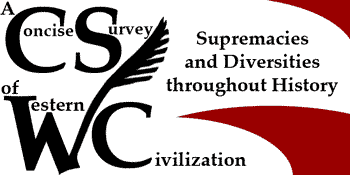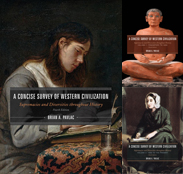Chapter 9
Making the Modern World: The Renaissance and Reformation,
1400 to 1648
- Link to Study Guide for this chapter
- Link to Primary Sources for this chapter
- Link to Art History for this chapter
- Link to Links to the Web for this chapter
The Purse of Princes
Many dynastic rulers in the transition period between the Later Middle Ages and the Early Modern period became monarchs of territorial states.
Man as the Measure
The revived interest in the culture of classical Greece and Rome created the intellectual revolution of the Renaissance.
Heaven Knows
The Protestant Reformation divided Western Latin Christianity.
Fatal Beliefs
Further divisions among Western Christians led to wars, which, ironically, largely ended religion as a cause for war in the West.
God, Greed, and Glory
Various goals motivated Europeans to launch ocean voyages, creating new colonial empires.
Last Updated: 2023 June 3



